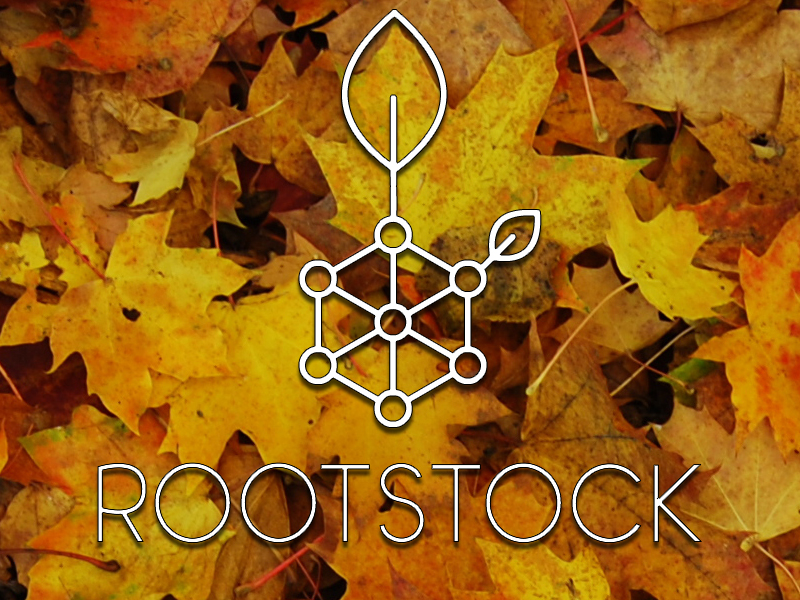A new blog post has come out explaining the essence of Rootstock, a Turing complete platform that will utilize the Bitcoin Blockchain for its operations. The post details this protocol will allow smart contracts and enable methods of exchange similar to the Ethereum project. Developers can use its side chain technology to implement this programmable system to the original permissionless digital ledger. The Medium statement reads:
Also read: U.S. Officials Warn Against Cannabis and Bitcoin Investment
“Essentially Rootstock aims to be what Ethereum is, a decentralized, Turing-complete smart contract platform. However, Rootstock aims to utilize the Bitcoin ecosystem rather than creating a new one from scratch. The way this will be accomplished is via the still not fully implemented sidechains technology.”
Rootstock Adding a Turing Complete Platform to the Bitcoin Ecosystem
 The Rootstock (RSK) side chain will operate as its own platform but allow interoperability between both blockchains. Developers of RSK believe this keeps investments safer by not “withering” away like the hundreds of Altcoins before it. Being a side chain, the project says it will not be creating a typical alternative token but rather create a two-way peg between Rootstock’s native currency RTC and Bitcoin.
The Rootstock (RSK) side chain will operate as its own platform but allow interoperability between both blockchains. Developers of RSK believe this keeps investments safer by not “withering” away like the hundreds of Altcoins before it. Being a side chain, the project says it will not be creating a typical alternative token but rather create a two-way peg between Rootstock’s native currency RTC and Bitcoin.
 To use the RSK system users simply transfer their bitcoins to the Rootstock side chain. Then the system’s features are available for use with RTC but can also be reverted to BTC at any time. In order to pull this off in a more secure manner, the team is using what they call a “federation.” This is a group of “leading Bitcoin companies,” that will enable the exchange between the blockchain and the RSK side chain. Federation members will earn fees from each transfer, and the use of multi-signature technology will also be implemented to protect users. The Medium post reads this will add a “threshold” of extra security to operations back and forth between chains.
To use the RSK system users simply transfer their bitcoins to the Rootstock side chain. Then the system’s features are available for use with RTC but can also be reverted to BTC at any time. In order to pull this off in a more secure manner, the team is using what they call a “federation.” This is a group of “leading Bitcoin companies,” that will enable the exchange between the blockchain and the RSK side chain. Federation members will earn fees from each transfer, and the use of multi-signature technology will also be implemented to protect users. The Medium post reads this will add a “threshold” of extra security to operations back and forth between chains.
Smart contracts are one of the great use cases the project will encompass and help develop. The Rootstock team believes these computerized contracts have the possibility to disrupt a “large number of existing business models.” The platform will make these digital contracts possible and automate a broad range of “commercial activities.” This includes escrow services, permissioned micro-payments, P2P exchanges, prediction markets and many more use cases. The Rootstock organization says that even Altcoins can be created by developers using the platform. The blog post explains:
“Other use cases include Altcoin creation, asset tokenization, remittances, Intellectual Property registry, Voting systems, supply-chain traceability, online reputation systems, digital identity systems, and in-game global currency. There are many more use-cases, and if the platform catches on with developers, we will probably see a number of very clever uses.”
 The forum post explains that there is no code ready for inspection yet since the white paper was introduced in December of 2015 at the LA Bitcoin conference. However this hasn’t stopped investors from funding the company, and it has received funds from Coinsilium for USD $5 million. Rootstock supporters believe it has a very promising future and offers the same concepts Ethereum is trying to accomplish with the security of the Bitcoin blockchain. Additionally, the platform will be backward compatible with Ethereum and could work together in some instances. Rootstock feels the federation brings maturity to the side chains ecosystem and reputable companies will help the process. The author says there is “high hopes” for this new system and look forward to seeing its fruition within the Bitcoin community.
The forum post explains that there is no code ready for inspection yet since the white paper was introduced in December of 2015 at the LA Bitcoin conference. However this hasn’t stopped investors from funding the company, and it has received funds from Coinsilium for USD $5 million. Rootstock supporters believe it has a very promising future and offers the same concepts Ethereum is trying to accomplish with the security of the Bitcoin blockchain. Additionally, the platform will be backward compatible with Ethereum and could work together in some instances. Rootstock feels the federation brings maturity to the side chains ecosystem and reputable companies will help the process. The author says there is “high hopes” for this new system and look forward to seeing its fruition within the Bitcoin community.
What do you think about Rootstock’s plans? Let us know in the comments below.
Images courtesy of the Rootstock website, and Pixbay











